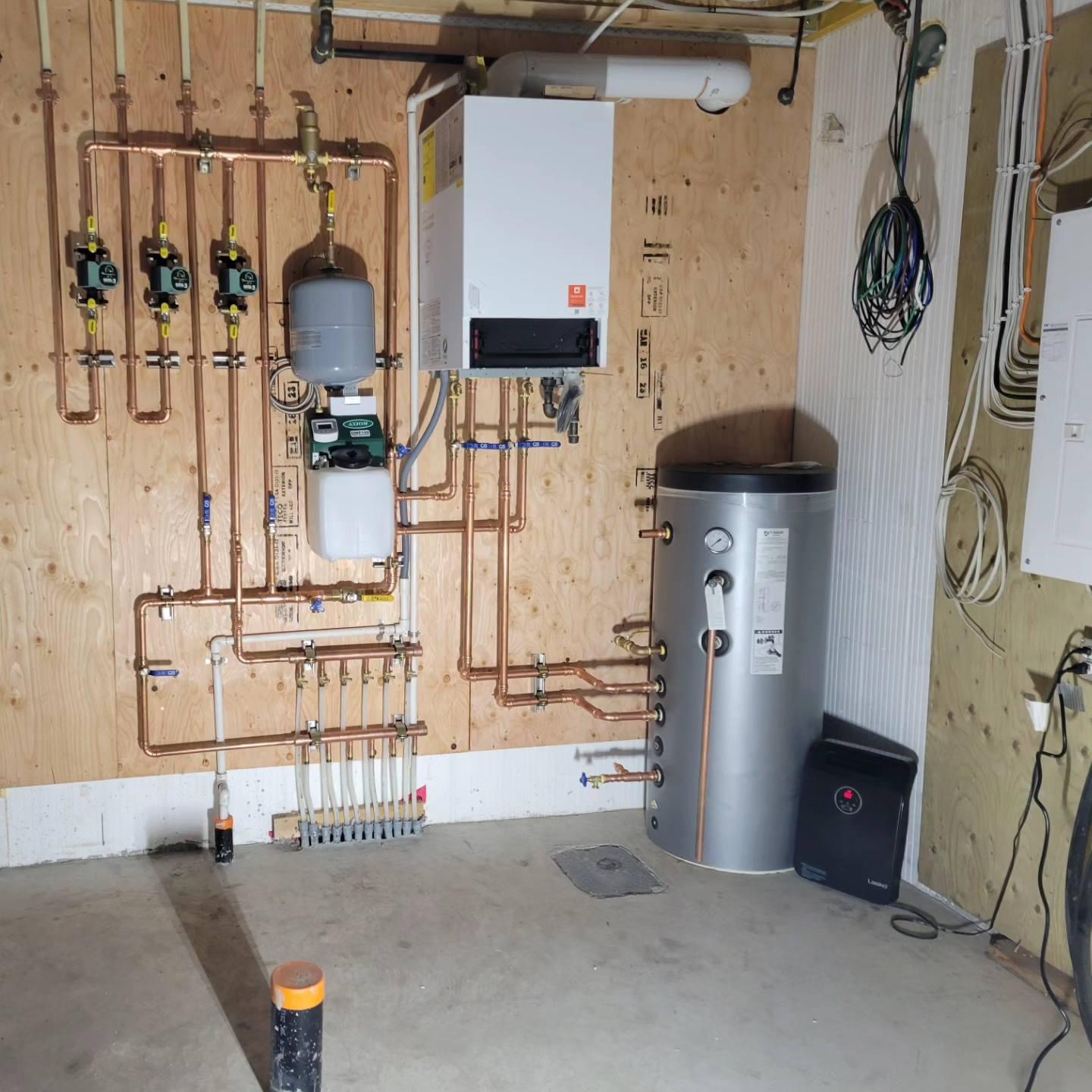Introduction
Bathroom plumbing is a crucial element of any home, yet it often goes unnoticed until a significant issue arises. Whether you're dealing with leaky faucets, clogged drains, or malfunctioning toilets, understanding the best practices for maintaining your bathroom plumbing can save you time, money, and frustration. This article will delve into various tips and techniques to ensure your plumbing remains in top-notch condition.
In this guide, we'll explore everything from preventative maintenance to emergency repairs. By the end of this article, you'll have a comprehensive understanding of how to keep your bathroom plumbing in excellent shape and when to call a professional plumber for assistance.
The Best Practices for Maintaining Your Bathroom Plumbing
Maintaining your bathroom plumbing is essential not TMK Plumbing and Heating Grande Prairie, AB https://tmkplumbing.ca/ https://tmkplumbing.ca/frozen-pipes/ https://tmkplumbing.ca/boilers/ https://tmkplumbing.ca/water-heaters/ https://tmkplumbing.ca/sump-pump-install-and-repair/ https://tmkplumbing.ca/sewer-line-services/ https://tmkplumbing.ca/leak-detection-and-repair/ https://tmkplumbing.ca/drain-cleaning/ https://tmkplumbing.ca/commercial-plumber/ https://tmkplumbing.ca/plumbing-tips/ https://tmkplumbing.ca/hvac/maintenance/ https://tmkplumbing.ca/hvac/ductwork-installation-and-repair/ https://tmkplumbing.ca/hvac/heat-pump-services/ https://tmkplumbing.ca/hvac/furnace-installation-and-repair/ https://tmkplumbing.ca/hvac/air-conditioning-installation-and-repair/ https://tmkplumbing.ca/septic-systems/ https://tmkplumbing.ca/contact-us/ https://tmkplumbing.ca/emergency-service/ https://tmkplumbing.ca/hvac/indoor-air-quality-solutions/ https://tmkplumbing.ca/schedule-service/ https://tmkplumbing.ca/hvac/ https://tmkplumbing.ca/about/ https://tmkplumbing.ca/hvac/garage-heaters/ only for the longevity of your fixtures but also for the overall health of your home's plumbing system. Here are some best practices that can help:
1. Regular Inspections
Why are regular inspections important?
Regular inspections allow homeowners to identify potential issues before they escalate into costly repairs. You should check for leaks under sinks, inspect toilet connections, and review any visible pipes.
2. Clear Drainage Systems
How can I keep my drains clear?
Preventative measures include using drain covers to catch hair and debris and performing monthly cleanings with baking soda and vinegar solutions.
3. Know Your Plumbing System
What should I know about my plumbing system?
Understanding the layout of your plumbing system helps you locate shut-off valves quickly during emergencies. Familiarize yourself with water supply lines and drainage paths.
4. Use Water Softener
How does hard water affect plumbing?
Hard water leads to mineral buildup that can clog pipes over time. Installing a water softener can mitigate these effects and extend the lifespan of your plumbing fixtures.
5. Maintain Fixtures
What fixture maintenance should I perform?
Regularly cleaning faucets and showerheads removes mineral deposits that could lead to reduced water flow or pressure issues.
6. Monitor Water Pressure
How do I check my water pressure?
Using a pressure gauge installed on an outdoor faucet allows homeowners to monitor pressure levels routinely, ensuring they remain within the recommended range (40-60 psi).
7. Prevent Toilet Issues
What steps can I take to avoid toilet problems?
Avoid flushing non-biodegradable items down the toilet and replace worn-out flapper valves every couple of years to prevent leaks.
8. Address Small Leaks Promptly
Why should I fix small leaks immediately?
Ignoring small leaks can lead to significant water waste and structural damage over time, making prompt repairs vital.
9. Install Low-Flow Fixtures
How do low-flow fixtures benefit me?
Low-flow toilets and showerheads reduce water usage without sacrificing performance, leading to lower utility bills while being environmentally friendly.
10. Beware of Chemical Drain Cleaners
Are chemical cleaners safe for my pipes?
While effective in some cases, chemical drain cleaners can corrode pipes over time; opting for natural alternatives is often safer.
Common Bathroom Plumbing Issues and Solutions
11. Clogged Drains
What causes clogged drains?
Clogged drains are often caused by hair, soap residue, or even foreign objects lodged within the pipes.
How can I fix it?
Using a plunger or a plumber's snake can effectively clear most clogs without resorting to harsh chemicals.
12. Leaky Faucets
Why do faucets leak?
Most leaks occur due to worn-out washers or seals within the faucet mechanism.
How do I fix it?
Replacing these components typically resolves the leak quickly; however, if unsure, consult a plumber for guidance.
13. Running Toilets
What causes toilets to run continuously?
A faulty flapper valve is usually responsible for keeping water running after flushing.
How can I fix it?
Replacements are straightforward; many homeowners handle this repair themselves with minimal effort.
Plumbing Tips from Professionals
14. Invest in Professional Inspections
Professional plumbers have tools and expertise that make identifying potential issues easier than DIY methods alone.
15: Learn Basic Plumbing Skills
Familiarizing yourself with simple repairs like unclogging drains or fixing leaks empowers homeowners to act quickly when issues arise.
FAQs About Bathroom Plumbing Maintenance
li1/ol1/li2li2/ol2li3# What are signs of poor bathroom plumbing maintenance?- Signs include slow drains, frequent clogs, unusual noises from pipes, or visible leaks.
- Turn off the water supply at the valve behind the toilet immediately and address the underlying issue.
- If you encounter persistent problems or complex issues beyond basic maintenance tasks.
Conclusion
Maintaining your bathroom plumbing may seem daunting at times but following these best practices will ensure your systems run efficiently while preventing costly repairs down the line. Regular inspections, proper fixture maintenance, awareness of common issues—and knowing when it's time to call in a professional—are all critical components of effective plumbing care.
By implementing these strategies consistently, you'll not only save money but also enjoy peace of mind knowing that you've taken proactive steps toward preserving one of your home's most essential systems: its plumbing!

In summary, keeping up with routine maintenance will go a long way toward ensuring that both you and your family enjoy a functional bathroom experience without unexpected disruptions—allowing you more time to focus on what truly matters: comfort in your home!